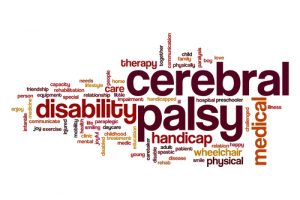Cerebral Palsy Diagnosis Steps

Was your child taken to the NICU right after birth? Did you experience a complicated or emergency delivery? In situations like these, severe side effects due to lack of oxygen or negligent delivery techniques will make it clear that your child has suffered a preventable but irreversible birth injury trauma: cerebral palsy. However, not all cases of cerebral palsy are evident right away or able to be diagnosed immediately – cerebral palsy diagnosis steps include many medical tests and exams.
Signs of Cerebral Palsy
The most severe cases of cerebral palsy can often be diagnosed shortly after birth. Typically, though, a cerebral palsy diagnosis is made within the first two years of a child’s life. There is not one ultimate test that will give you a confirmed cerebral palsy diagnosis, and sometimes it can take a while to get the answers you want.
Repeated observations and medical evaluations of your child will be necessary, especially if your child exhibits mild symptoms of cerebral palsy. A diagnosis may not be made until age 3 to 5, when the brain is fully developed.
When physical symptoms are evident, diagnosis may happen sooner. Parents who suspect cerebral palsy should be on the lookout for the following:
- Delayed developmental milestones, like crawling or walking.
- Growth chart delays for height and weight.
- Poor, overactive, or abnormal reflexes.
- Abnormal movement or posture.
- Unable to focus on or hear you.
- Difficulty breathing and swallowing.
Many parents hope that their child will catch up to their peers and that any delays in development or unusual ticks are only temporary. This is, unfortunately, not always the case.
How Cerebral Palsy Is Diagnosed
Because there is not one definitive test for cerebral palsy, your child’s doctor is likely to use a combination of factors over time to come to a diagnosis:
- Physical examinations and review of growth and developmental records.
- Assessments of newborn screens conducted at birth, as well as APGAR score.
- Reviewing records from pregnancy, labor, and delivery.
- Performing lab tests such as bloodwork and urinalysis.
- Evaluating mobility, speech, hearing, reflexes, coordination, vision, digestion, cognition, and more.
- Conducting neurological tests and analyses.
- Reviewing genetic markers and paternal health.
Clearly, the diagnosis of cerebral palsy is an involved, in-depth process, and one that doctors take very seriously before bestowing such a serious diagnosis on a child. Other conditions that mirror the symptoms of cerebral palsy, and that may ultimately be a child’s diagnosis, can include degenerative nervous disorders, muscle diseases, nervous system tumors, and metabolism disorders.
Waiting for a Cerebral Palsy Diagnosis
Parents who suspect the worst for their child will ache for confirmation about their child’s condition. They not only want clarity, but also the ability to conduct early intervention and get their child the necessary care to give them the brightest possible future, even with a CP diagnosis.
Because a cerebral palsy diagnosis is accompanied by a new life full of doctor visits, therapies, and more, the financial burden can be enormous. It is essential to secure benefits to offset the cost of caring for a child with cerebral palsy and, for some families, that involves filing a medical malpractice case. Sometimes caregivers are so relieved to finally have a diagnosis, they fail to look at why the diagnosis came to pass at all.
Regardless of whether your child’s cerebral palsy diagnosis means mild challenges to mobility or profound physical complications and developmental delays, the CP diagnosis is life-altering. Cerebral palsy diagnosis steps include plenty of medical tasks that need to be undertaken. Along with contacting speech pathologists, physical therapists, gastroenterologists, and more, contact your lawyer too.
Many cases of cerebral palsy are due to medical malpractice – and you should not be alone in shouldering the high cost of caring for your child with cerebral palsy. If a loved one has suffered from careless doctors or nurses, call Thurswell Law for a free consultation. There are no fees unless we collect compensation for your case.







